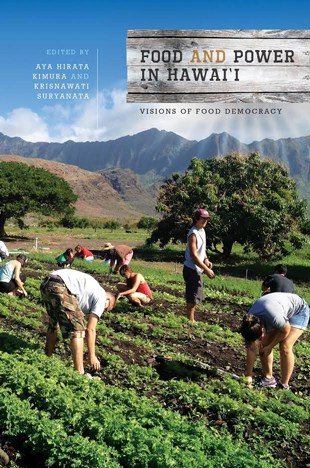A new book, Food and Power in Hawaiʻi: Visions of Food Democracy, explores the diversity of food challenges faced by the state. Edited by Aya H. Kimura and Krisna Suryanata of the University of Hawaiʻi at Mānoa’s College of Social Sciences, this rich compilation of case studies by island scholars and writers includes discussions on over land use policies, a gendered and racialized farming population, benefits and costs of biotechnology, stratified access to nutritious foods, as well as ensuring the economic viability of farms. Defying the reductive approach that looks only at calories or tonnage of food produced and consumed as indicators of a sound food system, Food and Power in Hawaiʻi shows how food problems are necessarily layered with other sociocultural and economic problems, and uses food democracy as the guiding framework.
“It is tempting to talk about problems of food and agriculture in Hawaiʻi in terms of self-sufficiency, but when we discuss it simply as a matter of volume of food, important issues like human rights and environmental impacts of food production tend to get lost. Once you set the goal as a certain percentage of self-sufficiency measured in terms of tonnage, for instance, the most logical answer would be to promote high input, large scale, monocropped farming…” said Kimura, an associate professor in the Women’s studies department.
Read original article at hawaii.edu
10 noviembre 2016Original Author: Lisa Shirota

